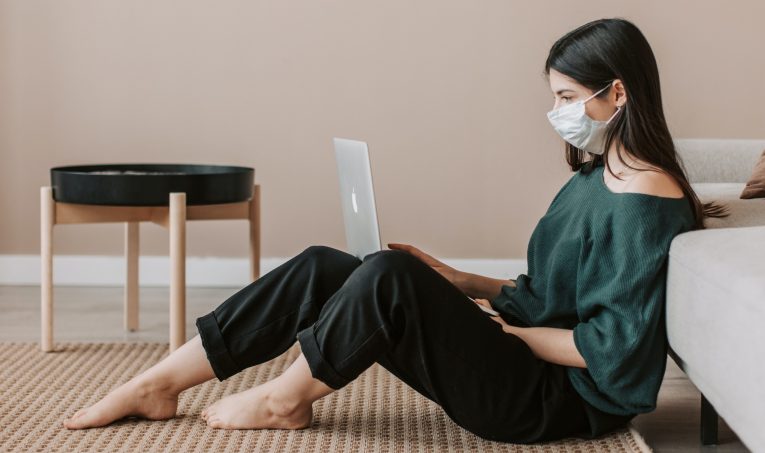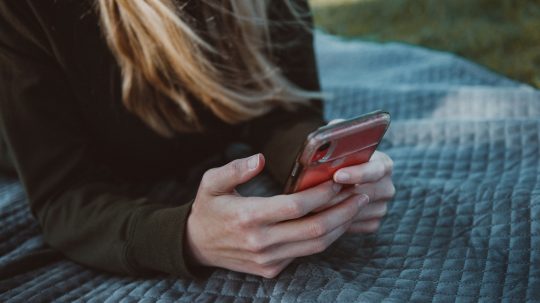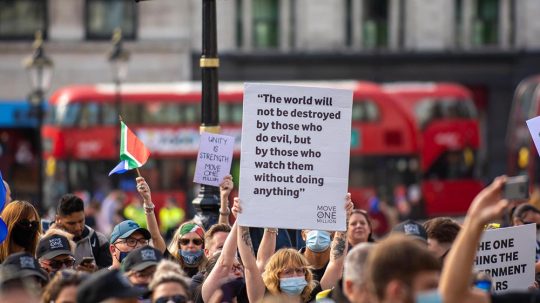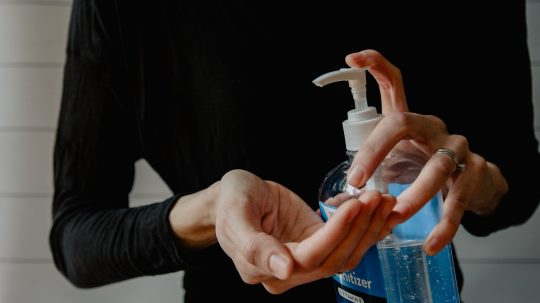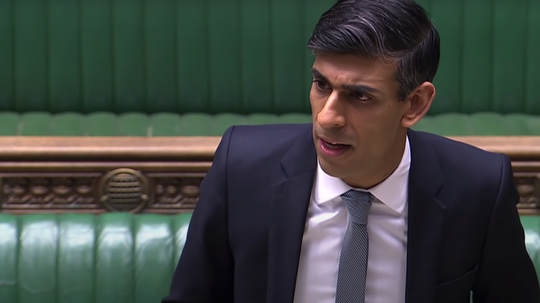People in England can now face up to £10,000 fines if they leave their homes in breach of new restrictions intended to curb the spread of coronavirus.
The snappily-titled Health Protections (Coronavirus, Restrictions) (Self-Isolation) (England) Regulations 2020, which we’ll refer to going forward as the Regulations, came into effect on Monday (28 September).
They have made self-isolation legally enforceable in England. Previously, the requirement to self-isolate was non-enforceable advice the government issued the public to limit the virus’ transmission.
These new Regulations add to a rapidly-evolving, increasingly complicated patchwork of coronavirus restrictions introduced by ministers since March this year.
This complexity was witnessed on Tuesday when Boris Johnson admitted he got the details of tighter coronavirus restrictions in north east England wrong at a press briefing earlier that day.
Meanwhile, last weekend, hundreds of students were prevented from leaving their accommodation at Manchester Metropolitan University by private security guards who were apparently trying to enforce the latest self-isolation rules after 127 people tested positive for coronavirus.
Lawyers took to Twitter to highlight how they did not appear to have the legal authority to do this, as the university later confirmed, prompting accusations of “false imprisonment”.
It comes after parliament’s joint human rights committee has warned that complexity and ambiguity around what is and isn’t lawful threatens to undermine Article 7 of the Human Rights Act, which requires laws to be sufficiently clear for a citizen to know what is and isn’t criminal behaviour.
EachOther encourages everyone to heed official guidance for the public to prevent a ‘second wave’ of the pandemic. It is also key that the public understands how to comply with the self-isolation laws – as breaches can result in life-changing, unappealable fines and criminal convictions.
Here we answer some of the key questions to clarify the latest regulations.
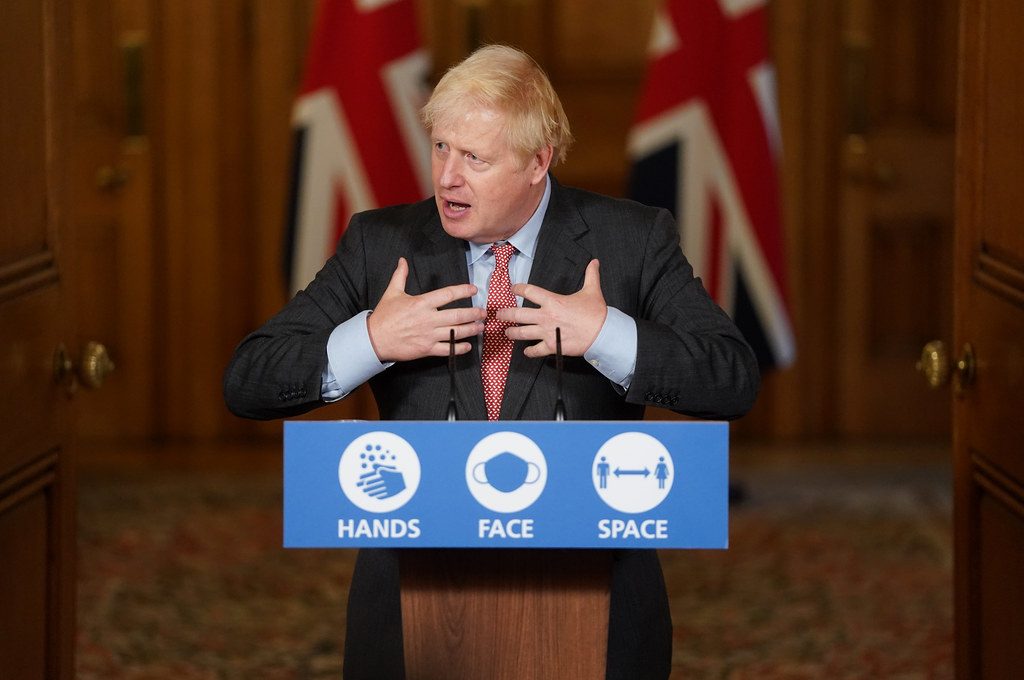
Boris Johnson recently apologised for confusing the latest coronavirus restrictions in the north east of England . Credit: Number 10
When can I be ordered to self-isolate?
When can I be ordered to self-isolate?
When you’ve tested positive for Covid-19 or come into ‘close contact’ with someone who tests positive. Close contact means:
- Having face-to-face contact with someone at a distance of less than 1 metre
- Spending more than 15 minutes within 2 metres of an individual
- Travelling in a car or airplane of other
Under a separate law, you are also required to self-isolate for 14-days if you arrive in the UK from one of a number of countries which aren’t exempt from quarantine rules.
Who can order me to self-isolate?
The Act says you can be ordered to self-isolate by the following ‘specified’ persons:
- The Health Secretary Matt Hancock (and those working on his behalf)
- A person ‘employed or engaged’ for the purposes of the NHS
- A person ‘employed or engaged’ by a local authority
At the moment, the order to self-isolate is most likely to come in the form of a telephone call from the NHS Test and Trace service.
It is important to note the new NHS Covid App is not included here. While it is clearly advisable to follow the app’s guidance to self-isolate, to prevent the spread of the virus, not doing so does not constitute a breach of the law.
What do I need to do?
Self-isolation means remaining at home and not going outside, subject to some limited exceptions.
You may also be required to provide the address of where you are self-isolating, and the names of everyone in your household, to the Department of Health.
Are there any exceptions?
The law states that you must not leave place where you are staying, except where necessary to:
- Seek urgent medical assistance where ‘urgently required’ or on the advice of a medical practitioner, including dentists, opticians and mental health services
- Visit a vet where ‘urgently required’, or on the vet’s advice
- Fulfil legal obligation such as going to court or to meet bail conditions
- ‘Avoid the risk of harm’
- Attend the funeral of a close family member
- Obtain basic necessities – such as food and medical supplies – where it is not possible to obtain provisions in another manner
- Access critical public services, such as social services
- Go and self-isolate at another location, if it becomes impossible to do so where you currently are
In an explainer video, barrister Adam Wagner, founder and chair of EachOther, highlights how a number of expressions in the law on exceptions are not defined and would need to be determined in court.
Among these are what constitutes ‘harm’ and whether this could include the mental or physical harm of not exercising. Exercise is not explicitly listed among the exceptions for which a person can leave the place they are isolating.
The Act also does not define who counts as a ‘close family member,’ and whether this could include first cousins, for example.
How long must I self-isolate for?
This varies, depending on your situation.
- If you have symptoms of Covid-19 and test positive for Covid-19, you must self-isolate for at least 10 days, starting from the day when you first displayed symptoms. If you do not have symptoms of Covid-19, but still test positive for coronavirus, then you are still required to self-isolate for 10 days, starting from the date that you took the test. You can stop self-isolating after this 10 day period has passed, provided that you have no symptoms – or if you only have a cough or changes to your sense of smell or taste (these may last for weeks).
- You must self-isolate for 14 days if you live – or are in a support bubble – with someone who has tested positive for Covid-19 or is displaying symptoms of coronavirus. If you do not get any symptoms, you can stop self-isolating after 14 days. If you start to display symptoms, you should get a Covid-19 test – if you test positive, you must self-isolate for 10 days starting from when you started to display symptoms. If you test negative, you must continue to self-isolate for the remainder of the 14-day period.
- You must also self-isolate for 14-days if you are contacted by NHS Test and Trace, or if you get an alert from the NHS COVID-19 app telling you to self-isolate. Again, if you start to display symptoms, you should get a Covid-19 test. If you test positive, you must self-isolate for 10 days starting from when you started to display symptoms. If you test negative, you must continue to self-isolate for the rest of the 14-day period.
Further information on self-isolation is detailed on the NHS website.
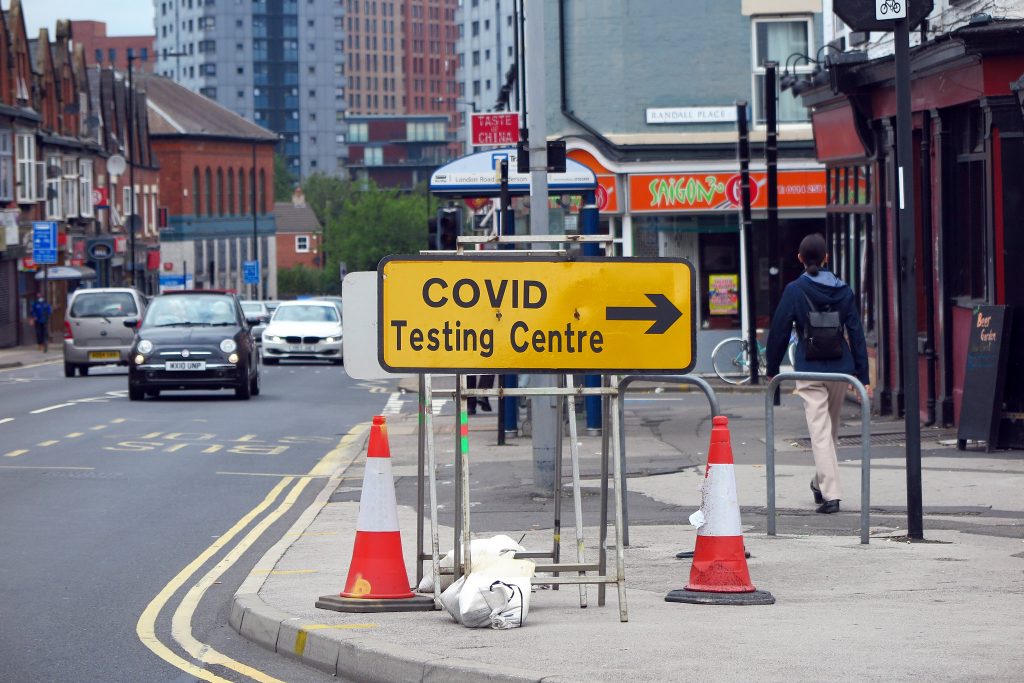
If you start to show symptoms of Covid-19, you should book a test as soon as possible. Credit: Flickr / Tim Dennell
What about my job?
The law prohibits your employer, or agency if you’re an agency worker, from encouraging you to work anywhere other than the place where you are self-isolating.
If you’ve been asked to self-isolate, you are required to notify your employer “as soon as practicable”.
How can this law be enforced?
The Act allows authorities to use “reasonable force” to direct or return you to where you are self-isolating, if they consider that you have left that location in breach of the law.
Who can enforce it?
- Police and police community support officers
- Anyone designated by the Health Secretary or a local authority. This could potentially include the government proposed ‘Covid Marshalls’
The security guards at Manchester Metropolitan University were not ‘designated’ by the NHS or a local authority to enforce the self-isolation rules, which means they did not have the authority to enforce them.
However, the wording of this section is so broad that it is possible local authorities could delegate authority to universities and or their security guards to enforce restrictions in future.
What is the punishment for breaching the coronavirus regulations?
You can receive a fixed penalty notice of £1,000 for breaching the laws, rising to a maximum of £10,000 for multiple offences.
For ‘aggravated’ breaches of self-isolation, where you are considered to have put others at risk, the first fine is £4,000 and a second fine is £10,000.

